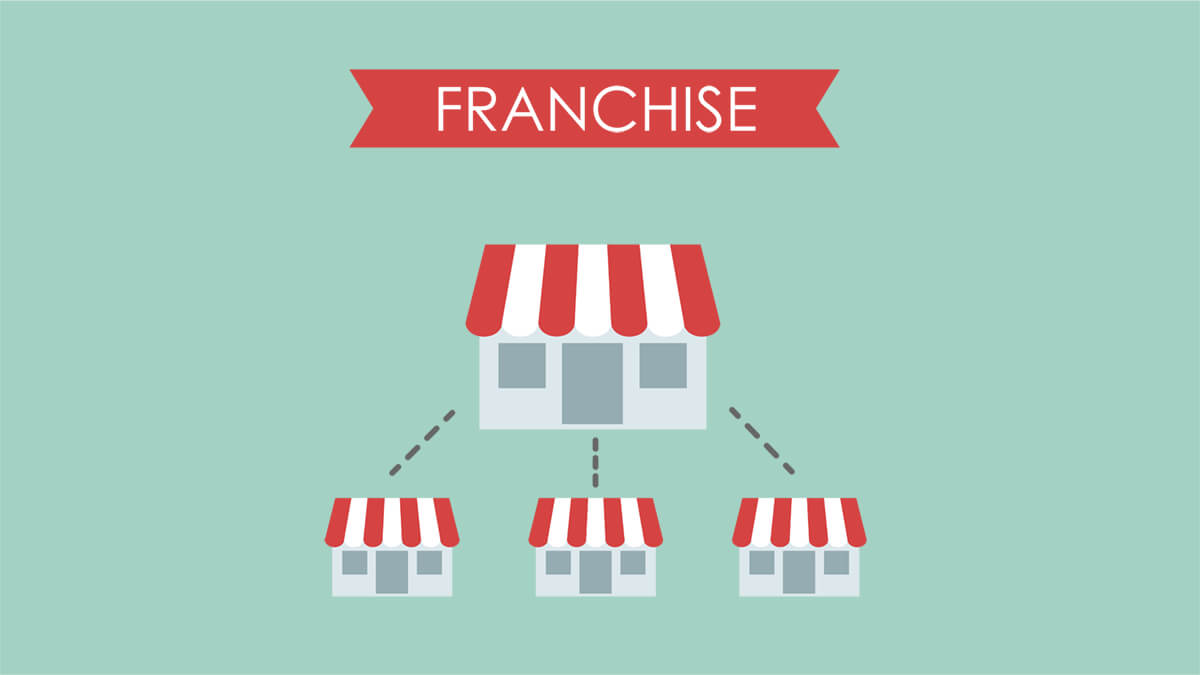McDonald’s. RE/MAX. Taco Bell. The UPS Store. Planet Fitness. Ace Hardware.
Some of America’s most recognizable brands are also some of America’s largest franchisors. But does investing in a franchise increase your chances of business success? That depends on a lot of factors. Which is why, before you decide to buy into a franchise, you should take the time to understand the positives and negatives of being a franchisee.
What Is Franchising?
Franchisors give individuals the opportunity to “buy in” to an existing business brand. Generally, the franchisee pays a licensing fee for the right to operate a business under the franchisor’s name, using the franchisor’s marketing, products, and management system. Franchises exist in a wide variety of industries, including restaurants, retail, and both B2C and B2B services. Over the years, franchising has become an increasingly popular way for individuals to open their own businesses, with over 800,000 franchises currently in operation.*
What Are the Benefits to Franchising?
It’s a Turnkey Operation
One of the biggest advantages to opening a franchise is that you’re not starting a business from scratch. Instead, the franchisor will provide you with detailed information on how best to run your business—information gained through the successes and setbacks of numerous other franchises. Plus, you’ll be able to take advantage of existing supply chains, payroll services, equipment repair providers, etc., ensuring you can hit the ground running and focus on the day-to-day operation of your franchise, rather than constantly worrying about big picture issues.
You Get Brand Support
A local restaurateur can’t afford to run a national ad campaign, but a franchisor can. When you open a franchise, you can take advantage of the franchisor’s marketing, including ad campaigns, social media efforts, and all the printed material for your franchise, from signage to handouts. This saves you from having to hire people to handle your marketing, approve messaging, and pay for large-scale branding efforts.
You Can Take Advantage of Lower Costs
As the franchisee, you’ll be able to buy your products and equipment straight from the franchisor’s distributors. In most cases, the franchisor will have contracts with those distributors, letting you take advantage of whatever volume discount they’ve negotiated. As a private business owner, you would be unlikely to find the low product/supply/equipment costs that franchise’s typically enjoy.
What Are the Drawbacks to Franchising?
You’re Not 100% in Charge
A franchise may be your business but it’s not your business. Your licensing agreement will come with a lot of restrictions and stipulations, limiting your ability to make anything but day-to-day management decisions. Some people enjoy never having to worry about the big picture, but others find running a franchise stifling. There’s little room for creativity and little say in how the franchisor does business.
It Can Cost a Lot
Franchise licensing fees can be expensive, and those who open franchises are expected to pay most, if not all, start-up costs, including any build-out costs. If you want to open a McDonald’s franchise, for instance, you’ll need to invest between $1 million and $2.2 million.† While other franchises are cheaper to open, start-up costs are just the beginning. You’ll also be expected to pay regular licensing fees and/or royalties to the franchisor.
You Won’t Be Unique
The flipside to being able to take advantage of a corporate brand is that you’ll also be beholden to that brand. If the brand suffers, your sales are likely to suffer. Additionally, if another franchise opens near yours, most customers won’t distinguish between the two, which will likely cause the new franchise to cannibalize a portion of your sales.
How Can You Learn More About Succeeding in Business?
Franchising is just one way to start a business. If you want to learn more about business—and improve your chances of choosing the right business to open—you should consider earning an advanced business degree. In particular, a Master of Business Administration (MBA) degree can give you the business acumen you need to become a successful business manager.
Offered at all of the best business schools, a master’s in business administration is like a management degree and a business administration degree rolled into one—which is why a lot of people choose an MBA over other degree programs. And thanks to online education, enrolling in a top MBA program is more possible than ever. Instead of requiring you to attend night school or daytime classes that will interfere with your ability to work full time, online MBA programs give you the power to earn your degree right from home. Plus, when you earn an MBA online, you can choose from one of two learning formats: course-based or competency-based. The course-based degree program is great for students who prefer an instructor-lead approach. For those who wish to use their real-world experience to potentially speed their progress, the competency-based format allows you to progress at your own pace and be measured by a variety of assessments.
Succeeding in business requires a deep understanding of how business works. When you earn your degree from an online MBA program, you can put yourself in position to make the most of whatever business you start.
Walden University is an accredited institution offering a Master of Business Administration degree program online. Expand your career options and earn your degree in a convenient, flexible format that fits your busy life.
*Franchise Direct, U.S. Industry Franchise Statistics, on the internet at www.franchisedirect.com/information/usfranchiseindustrystatistics.
†Franchise Help, McDonald’s Franchise, on the internet at www.franchisehelp.com/franchises/mcdonalds.
Walden University is accredited by The Higher Learning Commission, www.hlcommission.org.




